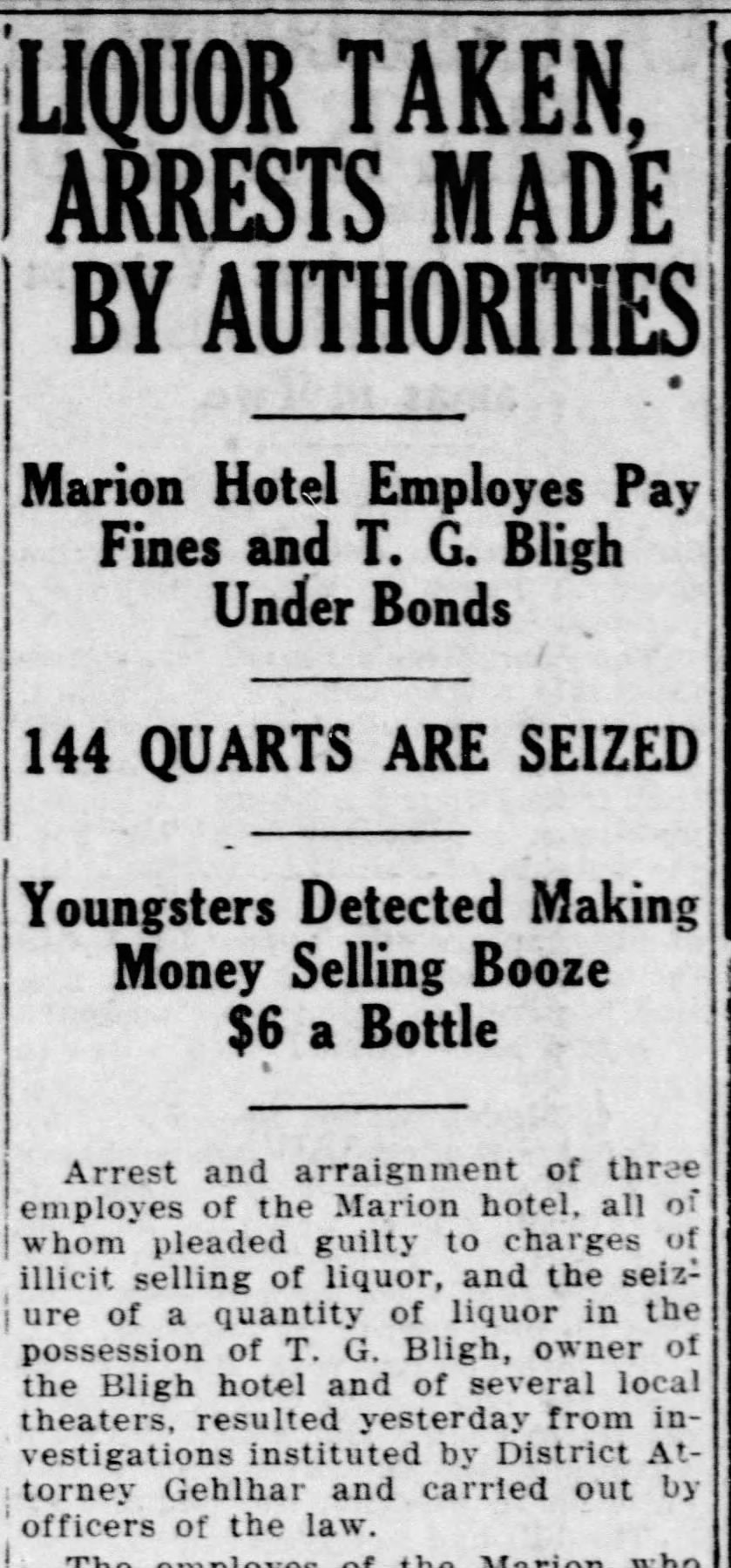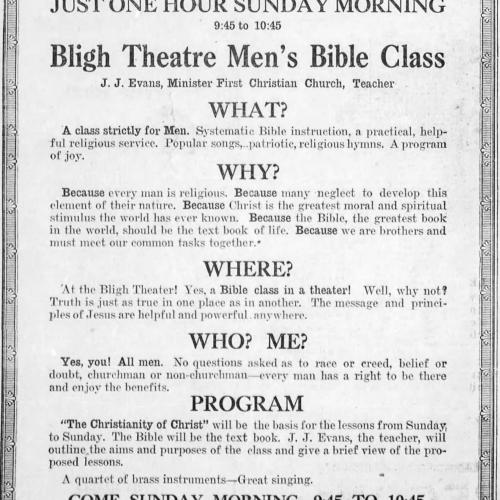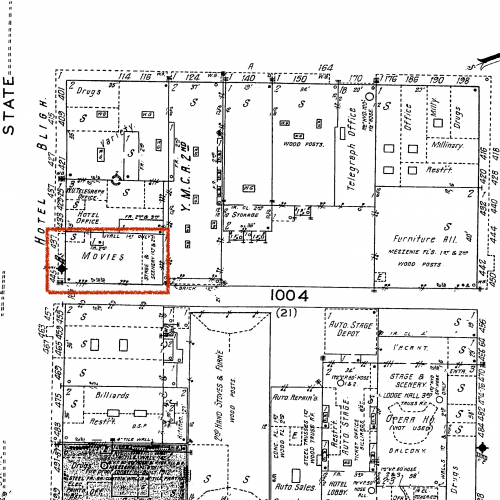Salem businessman T.G. Bligh opened his grand eponymous theater in June 1911 to a packed audience who enjoyed a full program of vaudeville, music, and moving pictures. The theater began construction a year before as half of a large and modern building in downtown Salem. The $50,000 theater was designed to accommodate an audience of 700 people with a "commodious gallery" and "a stage large enough to handle almost any attraction" including theater productions and movies (1). According to newspaper stories at the time, Bligh had arrived "broke" in Salem three years earlier (2). He operated a 10-cent theater in 1909 (3) and somehow bootstrapped himself into a prosperous entrepreneur. By 1917 Bligh operated three Salem theaters, including the Ye Liberty and the Grand (4).
The Bligh theater boasted all of the latest safety features of the time, including an asbestos drop curtain, all electric wiring in conduits, and "the most perfect artificial ventilation system" such that "Salem people will be surprised at the size and equipment of this new temple of amusement, which surpasses anything of the kind in the state and is a fine advertisement of our city" (5).
The Bligh theater hosted musical performances as well as frequent vaudeville performances. They often held comedy shows as well as famous orchestras.
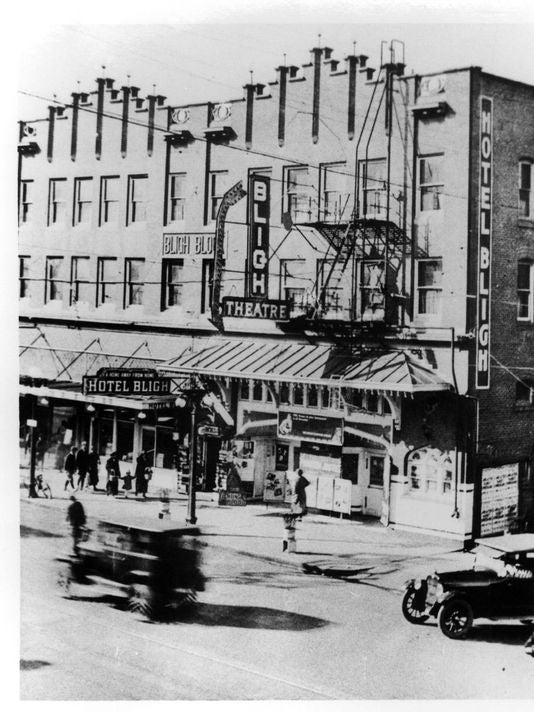
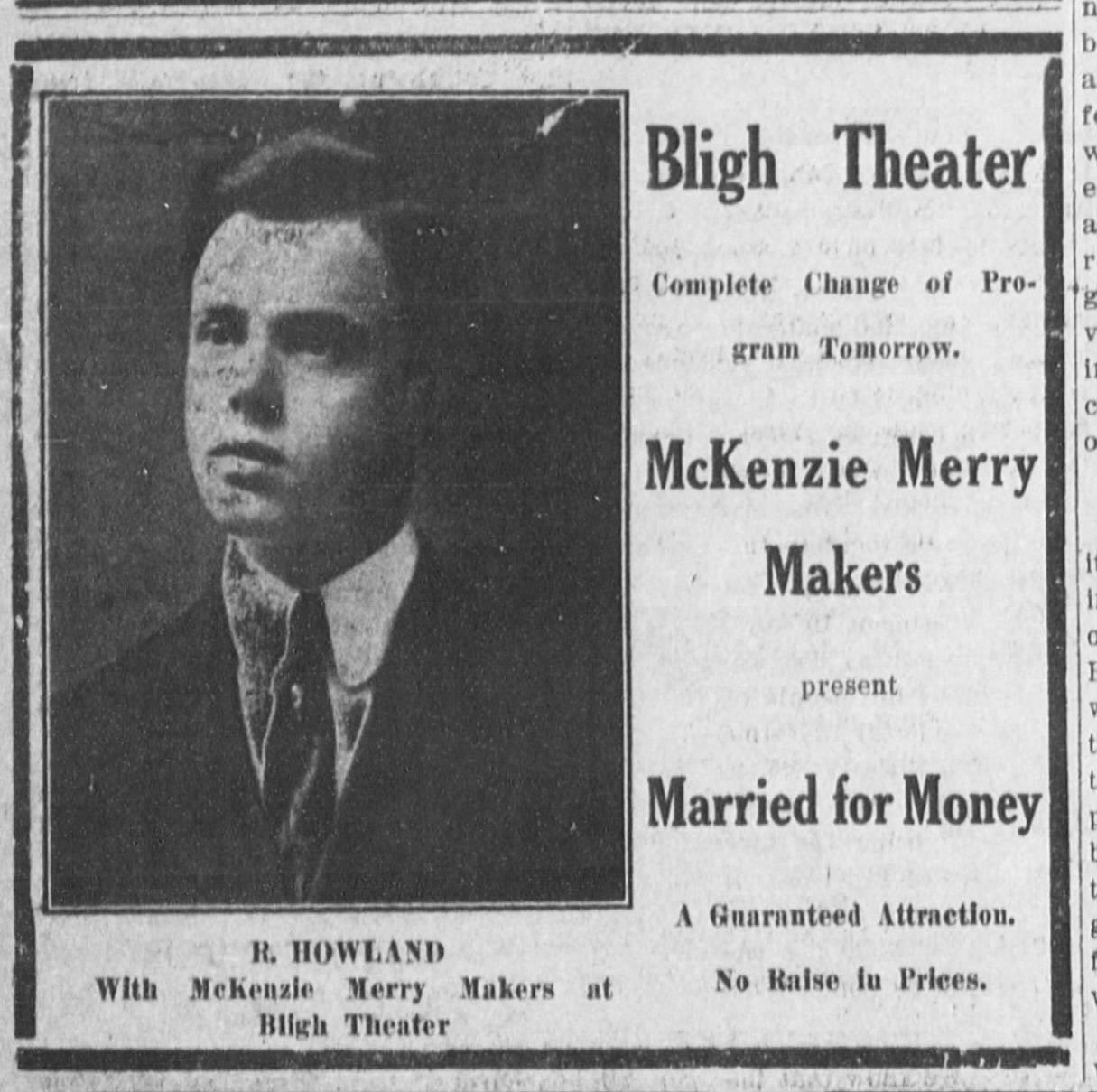
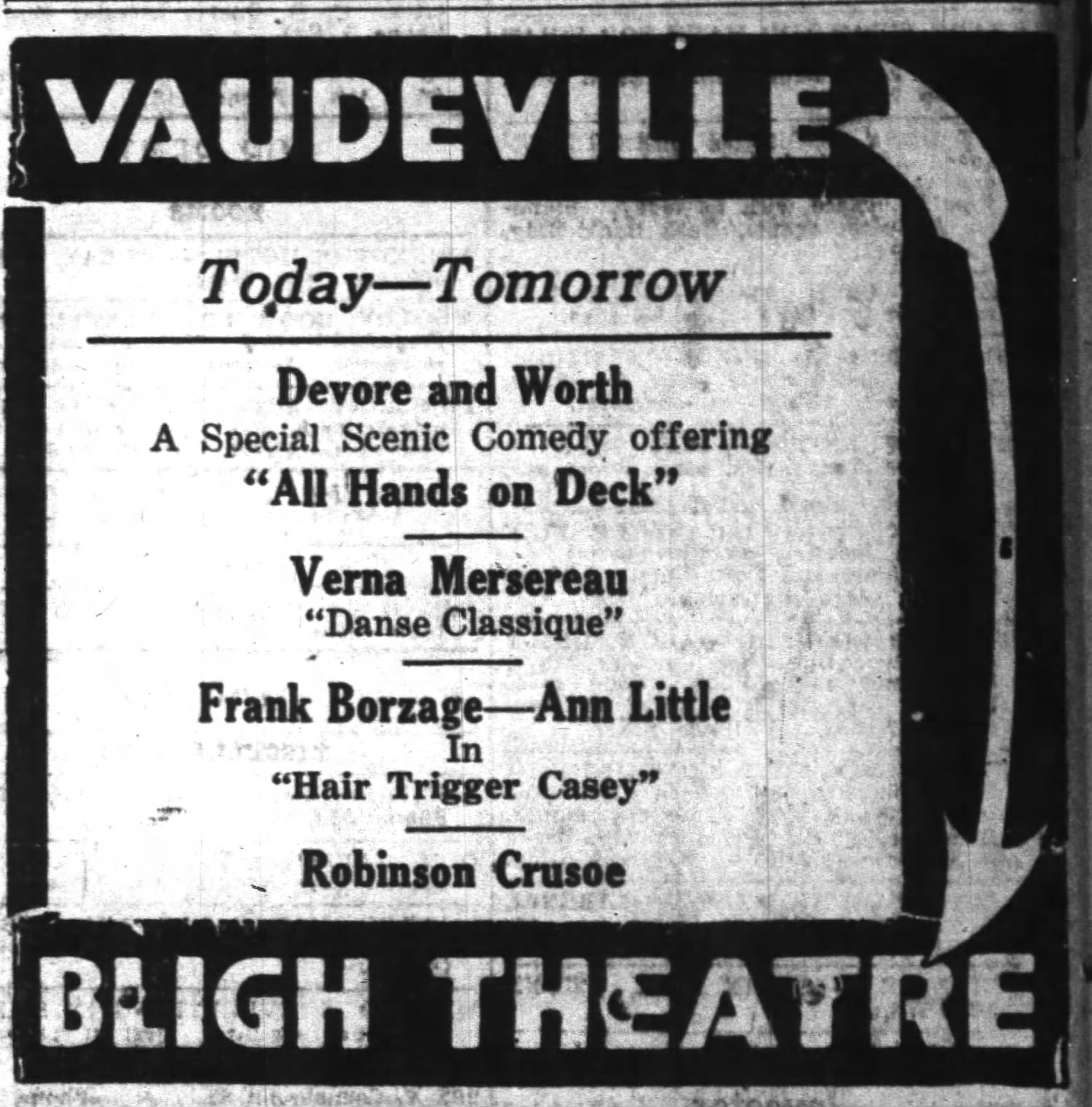
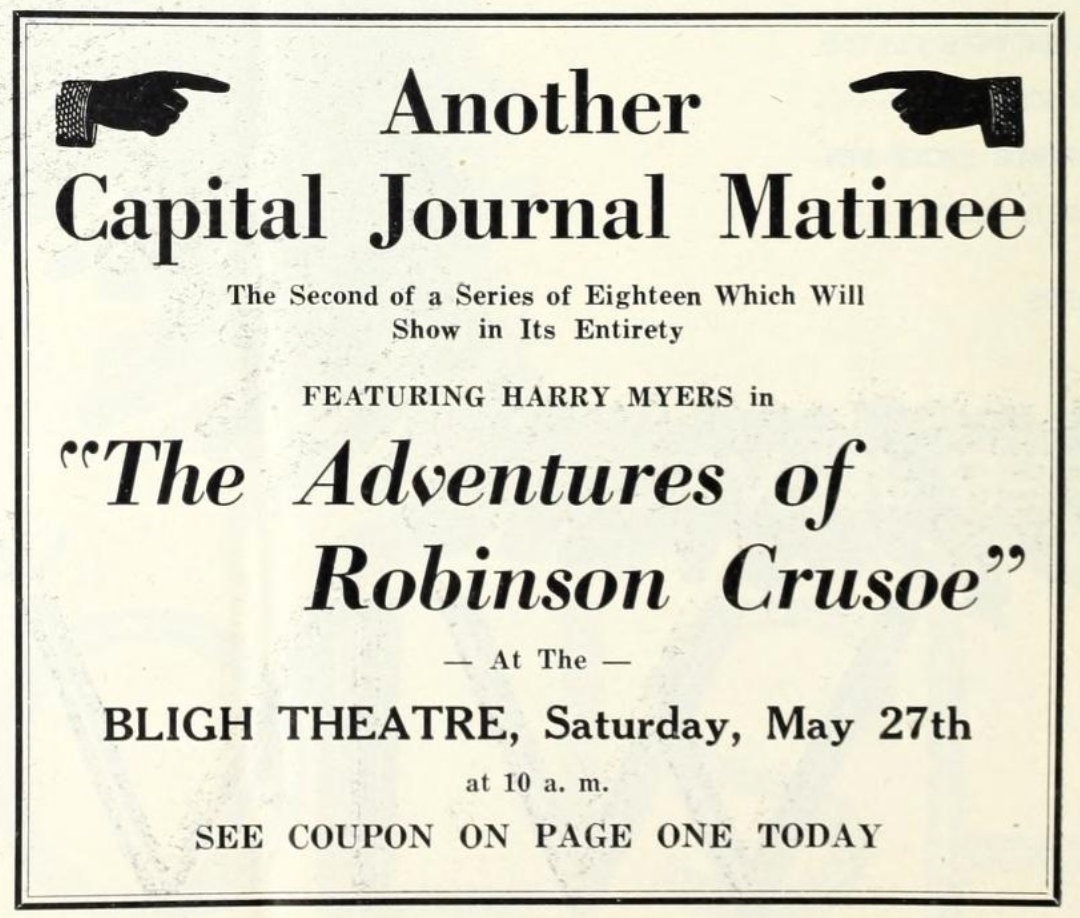
In 1922 T.G. Bligh's son and co-manager Frank Bligh decided that the Bligh theater should take part in an exploitation contest sponsored by the film periodical Universal Weekly. In the tenth week of the contest the Bligh theater was actually named as a weekly winner due to a particularly effective cooperative tie-in between the theater and Salem’s Capitol Journal newspaper (6). The paper ran a large advertisement for a “Capital [sic] Journal Matinee” at the Bligh. In the same paper was printed a cut-out coupon which could be presented at the theater to gain admission for five cents. This was targeted specifically at children, as the serial was considered to have good appeal for youngsters. The clever part about this advertising scheme is that the paper ran both the advertisement and a short two-column reader for three weeks at no cost to Bligh. This provided the Bligh theater with three weeks of free front-page advertising, increasing their patronage, while the Capitol Journal received an increase in readership due to the exclusive coupon deal with the theater.5 This advertising practice is an ideal example of a marketing tie-in between business (and even industries) that turned out to be mutually beneficial for both parties.
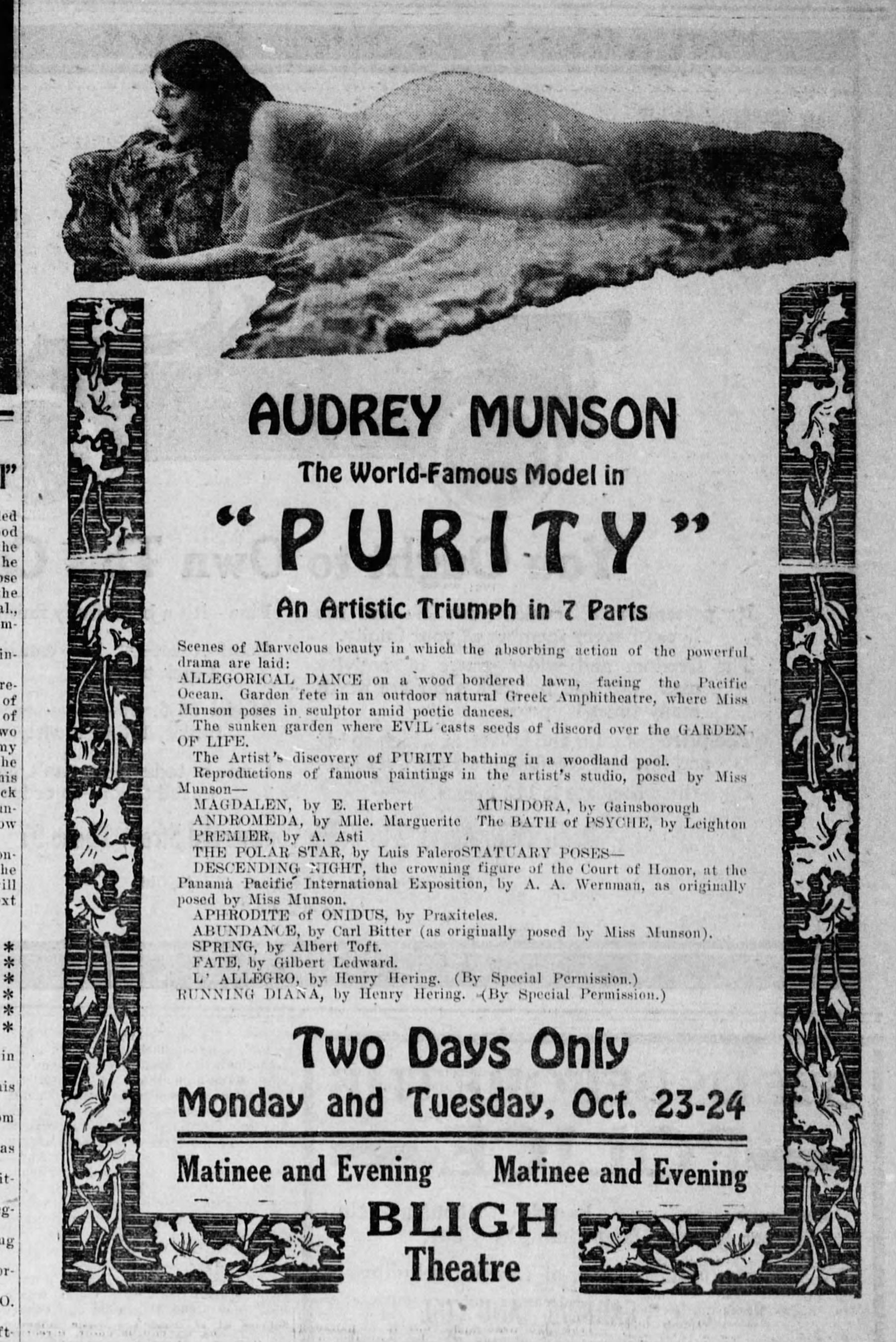
In 1916 the Bligh screened Purity (Rea Berger, 1916), which starred the famous model Audrey Munson. The movie played all over Oregon, although it faced censorship elsewhere due to the nudity.
Possibly, some of T.G. Bligh's success was due to a side business distributing illegal liquor out of the back of the theater, his hotel, and his own home. He was arrested in 1917 but released with a mere $25 fine as a "warning."
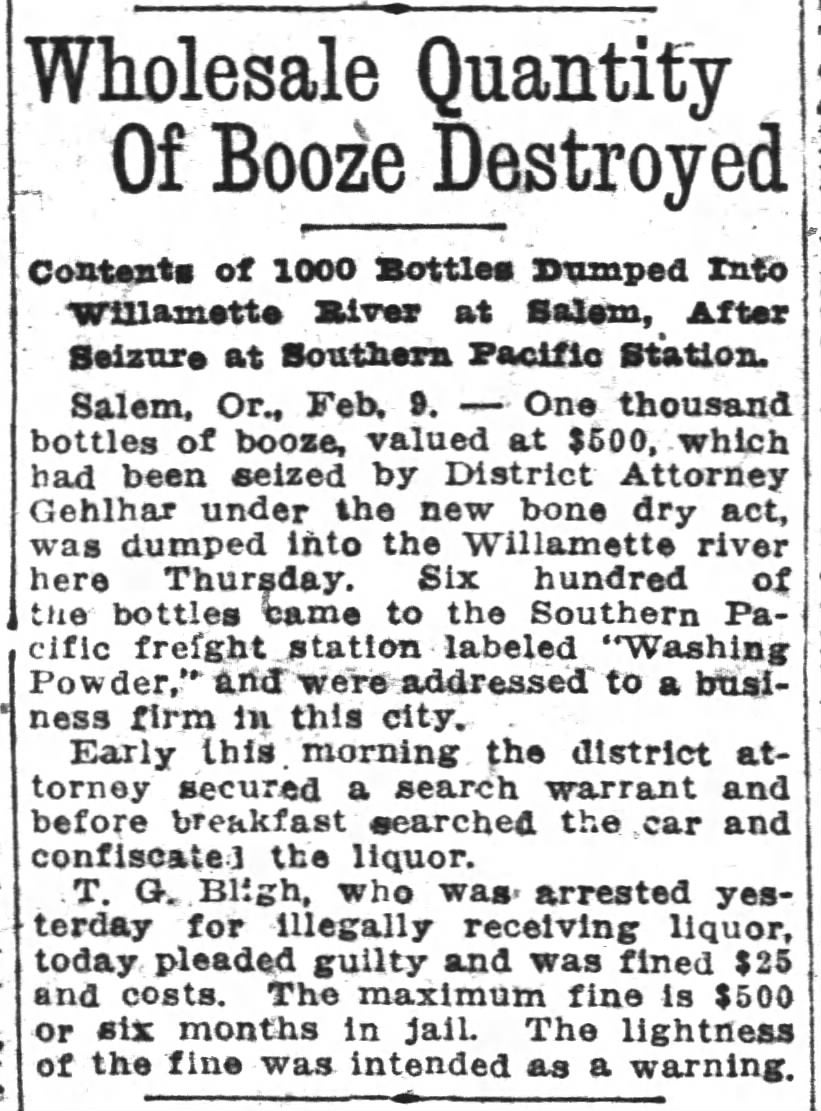
T.G. Bligh was killed in an auto accident in 1924, and his son Frank assumed sole ownership of the theater. Frank Bligh continued to operate the theater until 1926 when he opened a new, even grander venue called Bligh's Capitol theater.
